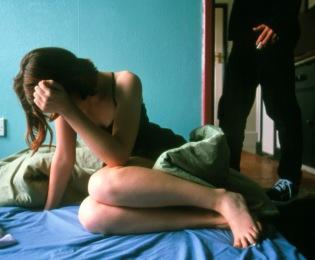Reform needed to end exploitation of women through prostitution and sex trafficking

Ireland’s illicit indoor sex industry churns out profits of between €180 million and €250 million a year from about 1,000 women – nine out of 10 of them migrants – and an unknown but significant number of children working in the industry. By Nusha Yonkova, Anti-trafficking Co-ordinator with the Immigrant Council of Ireland.
These stark facts, shocking in themselves, don’t begin to tell the real story about prostitution and sex trafficking in Ireland.
In 2009, the Immigrant Council of Ireland (ICI) published a groundbreaking report into the trafficking of migrant women into the Irish sex industry, “Globalisation, Sex Trafficking and Prostitution: The Experiences of Migrant Women in Ireland”. The researchers found that in a period of 21 months, 102 women and girls, mainly from Africa and Eastern Europe had been trafficked into or through Ireland for the purposes of sexual exploitation. Eleven of the 102 were children at the time they were trafficked.
The research included an audit of the largest website advertising the services of “escorts” and found that on the one day in the site was audited, a minimum of 1,000 women were available for purchase in 19 of the 26 counties.
Facts presented at the sentencing of an Irish brothel keeper in a court in Wales last year revealed that girls, one just 15 years old, had been trafficked into Ireland and were found in his establishments, and were sold for sex to Irish men. This starkly illustrates the lengths criminals will go to in order to meet the demand for paid sex in Ireland.
People like to draw a distinction between victims of sex trafficking and women who they like to say have chosen to be involved in prostitution. But the distinction is a blurred one.
We know that women and girls who have been trafficked into Ireland’s sex industry have been found in the same brothels, being exploited by the same pimps and for the gratification of the same punters as women who do not fit the very strict definition of a victim of trafficking.
And the reason for them being in those brothels is the same – because there is a demand from men in Ireland to buy sex, which keeps the sex industry alive.
The experiences of women involved in prostitution, whether they are victims of trafficking or not, can vary in terms of degree, but share many similarities – violence and assault, rape, physical and psychological harm.
And the motivations of those who exploit them is the same – to make money, for those who control the women, and sexual gratification for those who buy them. Underpinning it all is an assumption that is okay for a human being to be bought and sold.
Ireland is a signatory to various international treaties that oblige us to introduce measures discouraging the demand for the services of trafficked people.
The most effective way to tackle sex trafficking has been shown to be by discouraging demand for paid sex.
An alliance of civil society organisations has been formed to lobby legislators for reform of our prostitution laws and to raise awareness about how our current approach is failing our anti sex trafficking efforts.
The alliance has undertaken a national campaign called Turn Off The Red Light, End Prostitution in Ireland. It is supported by a wide range of groups and individuals including unions, NGOs, women’s, men’s and children’s groups, rape crisis organisations and others.
The campaign is gaining momentum, with some notable commitments so far.
The former Minister for Justice and Law Reform sent departmental officials to Sweden after its 10-year evaluation of the legislation there. The officials’ report was referred by the Minister to the Attorney-General and he indicated earlier this year that the Government was examining whether similar legislation could be introduced here.
Last year, the Labour Party passed a motion in support of the campaign at its annual conference, reflecting Labour Women’s policy on prostitution which supports moves for its elimination because it is incompatible with gender equality and human dignity and is a form of violence against women.
Fine Gael brought forward a Private Member’s Motion calling for a review of the existing prostitution legislation in 2009 and the party has indicated its support for the Swedish approach.
The Green Party has included a commitment in its election manifesto to introduce the “Swedish model” of legislation also.
The Turn Off The Red Light campaign has a simple legislative ask. That is, that that the buyers of sex be fined and those selling sex be decriminalised.
The evaluation of Sweden’s legislation found that this approach led to a reduction in sex trafficking and prostitution, reduced the market for prostitution, and reduced the supply of migrants to “feed” the market for paid sex.
Importantly, the legislation, which is supported by a large majority of Swedes, has resulted in a new mindset among younger people, who see prostitution as unacceptable in modern societies and incompatible with gender equality and human dignity.
